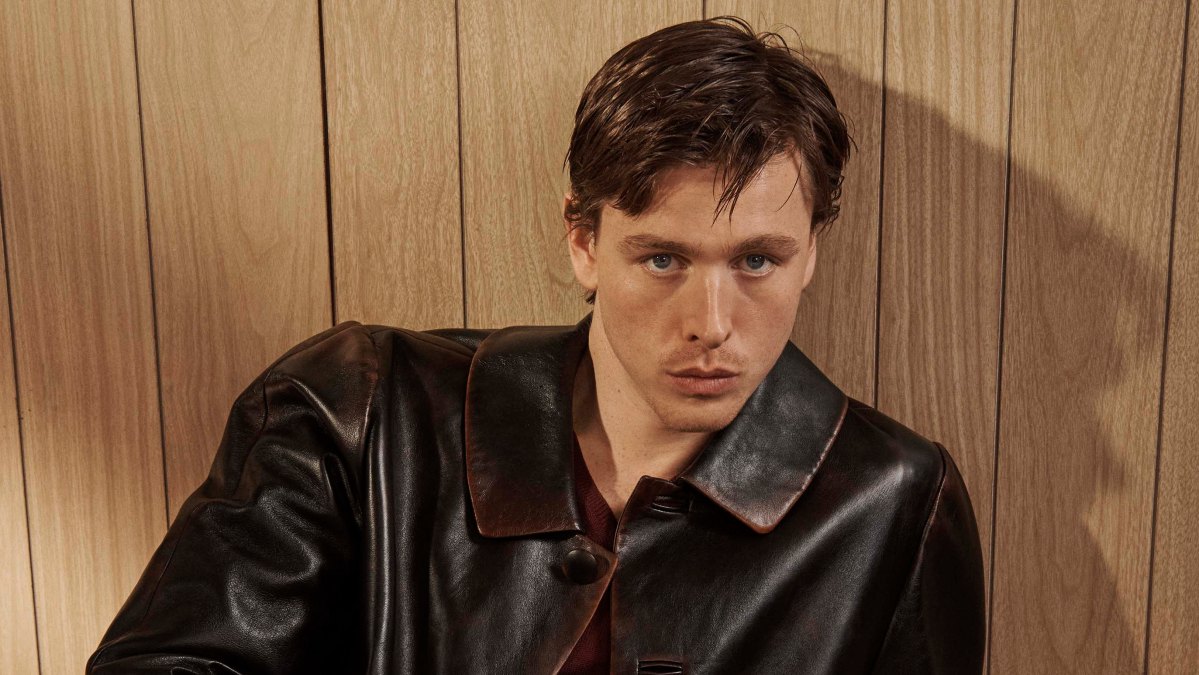Harris Dickinson likes time alone, a stroll in the local woods to clear his brain. The actor can walk for miles. Nature, solitude, is “a remedy”, he says while talking about walks in Epping Forest in east London, near where he grew up.
However, there might be a problem. Dickinson is playing John Lennon, in Sam Mendes’s absurdly audacious The Beatles: A Four-Film Cinematic Event, due in cinemas in 2028. Mendes’s opus devotes one film to each member of the Fab Four, and while a Paul McCartney instalment is essential, George Harrison’s is a more ethereal prospect and Ringo Starr has had a nice life, Lennon’s story is clearly the most interesting and challenging — from the music to the drugs, Yoko Ono, more drugs and his murder.
It is not, I suggest to Dickinson, a role that will bring much of his essential … “Calm?” he interrupts. Quite. Did he feel reticent about taking it on? “A little,” he admits. “It felt frightening because of the magnitude of the character — this icon. There’s always a fear, but the fear around the exposure that will come with it didn’t creep in too much because it is a privilege that I get to do this every day.” He grins. “And, yes, I’ll still go to the forest.”
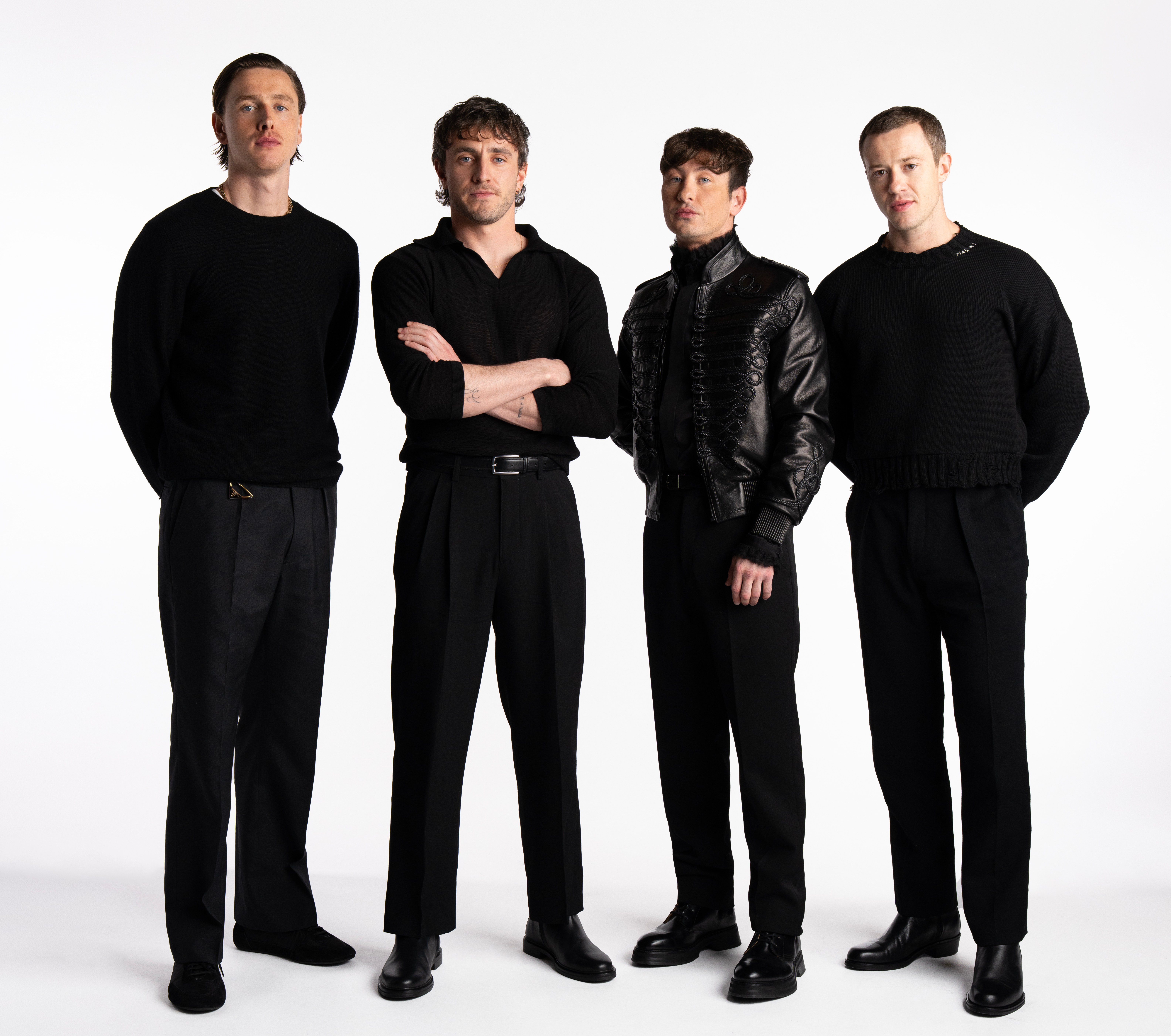
From left: Dickinson as John Lennon with fellow Beatles actors Paul Mescal (McCartney), Barry Keoghan (Starr) and Joseph Quinn (Harrison)
JOHN RUSSO/PA WIRE
He has met McCartney a few times but not Ono or Lennon’s sons, Sean and Julian. His background is similar to Lennon’s and he frowns when I warn him how many working-class hero headlines are heading his way.
But his parents — a hairdresser and a social worker — are thrilled. “My dad’s a northerner, from near Liverpool, so he was very impressed,” says Dickinson, who is 29.
“And Mum just can’t quite believe it. But it’s funny, my family has this amazing ability to move on very quickly. The other day I put in the family group chat that I’d met Paul. One person said, ‘Wow!’ And then they moved on to send photos of [my nieces and nephews] in a park.” He rolls his eyes in loving exasperation — a man so far very relaxed at the start of a job that is as big as one can, well, imagine.
• The Beatles: Sam Mendes promises ‘first bingeable cinema’
We meet in Dickinson’s office in London. As well as acting — excelling in the wealth satire Triangle of Sadness and Babygirl, in which he has an affair with Nicole Kidman’s character — he runs a company called Devisio Pictures and has a full range of merch (lighters, mugs) emblazoned with its name. He is proud, and he should be, because before all that Beatles bombast this rather unusual star has directed his first film. Urchin is about a homeless recovering addict who wants to do better, but keeps finding trapdoors. It is a sad if surprisingly humorous film that humanises the people we walk past day-to-day. It took him five years to write and opened to rave reviews at the Cannes Film Festival in May.
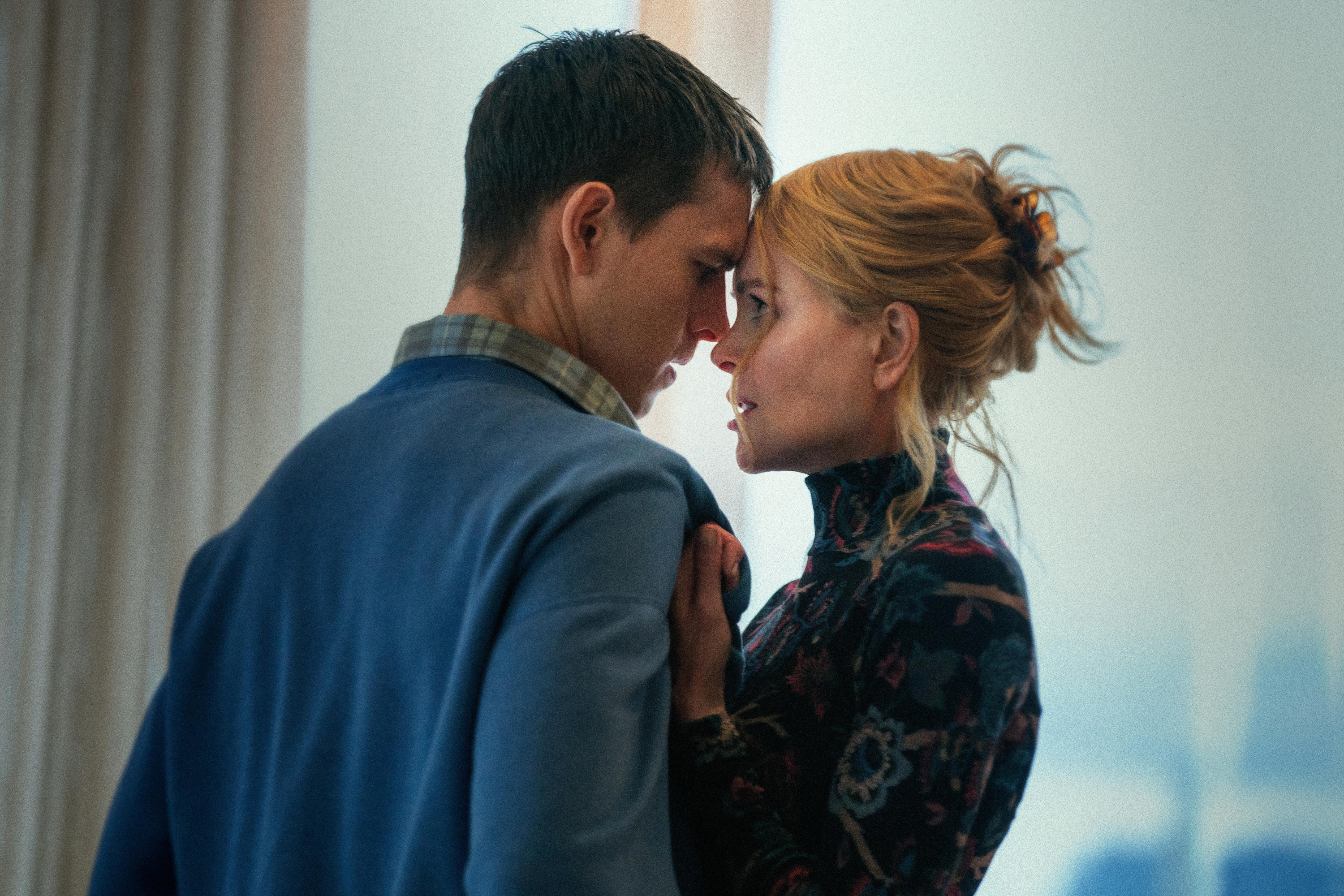
With Nicole Kidman in Babygirl (2024)
NIKO TAVERNISE/A24/PA
“Oh, I’m just looking at my Cannes acceptance letter — no big deal,” Dickinson says drily, a little bit David Brent, as he peers towards his shelves. I say the shelves need filling. “What with? Awards? Pictures of me?” He smiles as he sits down,
In his white T-shirt and big black trousers. Dickinson is dry and sarcastic, very much like, well, John Lennon.
He isn’t afraid of a challenge. Urchin took a while to fund. “It’s not a subject matter that people are exactly putting their hands in their pockets for willy-nilly to get made,” he admits. “It’s very personal,” he adds, pointing out that the main character, Mike (Frank Dillane), works in a hotel, as Dickinson did in his early twenties, and as a litter picker on London Bridge, as he also did.
“There are a lot of meaningful links to how I’ve arrived where I am,” Dickinson says. Dickinson has a bit part. Did he put himself in to help with financing? “No, another actor dropped out, so I just decided to do it myself.”
He has that sort of energy about him — this pragmatic attitude that if there is something to be done he should just do it. For years Dickinson has worked with the homeless, and not in the patron way other celebrities might. “I have a problem with people in entertainment talking about their involvement in causes because there are so many people that don’t get the spotlight like that,” he says. However, in lockdown he helped at Project Parker, an organisation in Walthamstow in east London, while also working for the Waterloo branch of Under One Sky, a charity that distributes food and medical supplies, then setting up its Hackney branch.
I guess the whole point of Urchin is to raise awareness? “For sure,” he says. “But I don’t want to sound like some f***ing faux saviour, offering up solutions to problems that are way bigger than me. I’m just a tiny cog.”
Still, he has done his hard yards, meeting experts in prison reform, probation, addiction and restorative justice. Growing up, he also knew people who went through the problems raised. “The fragility is scary.” I say the hardest scene is when Mike is told that because he is a white, able-bodied man with a history of crime he will not receive the rehousing he needs.
• The making of Harris Dickinson, from binman to Beatle
“It’s the truth,” Dickinson says. “He’s not going to be prioritised. I don’t know solutions, but we’re in a mental health epidemic right now, particularly among men — people fall between the cracks continuously.”
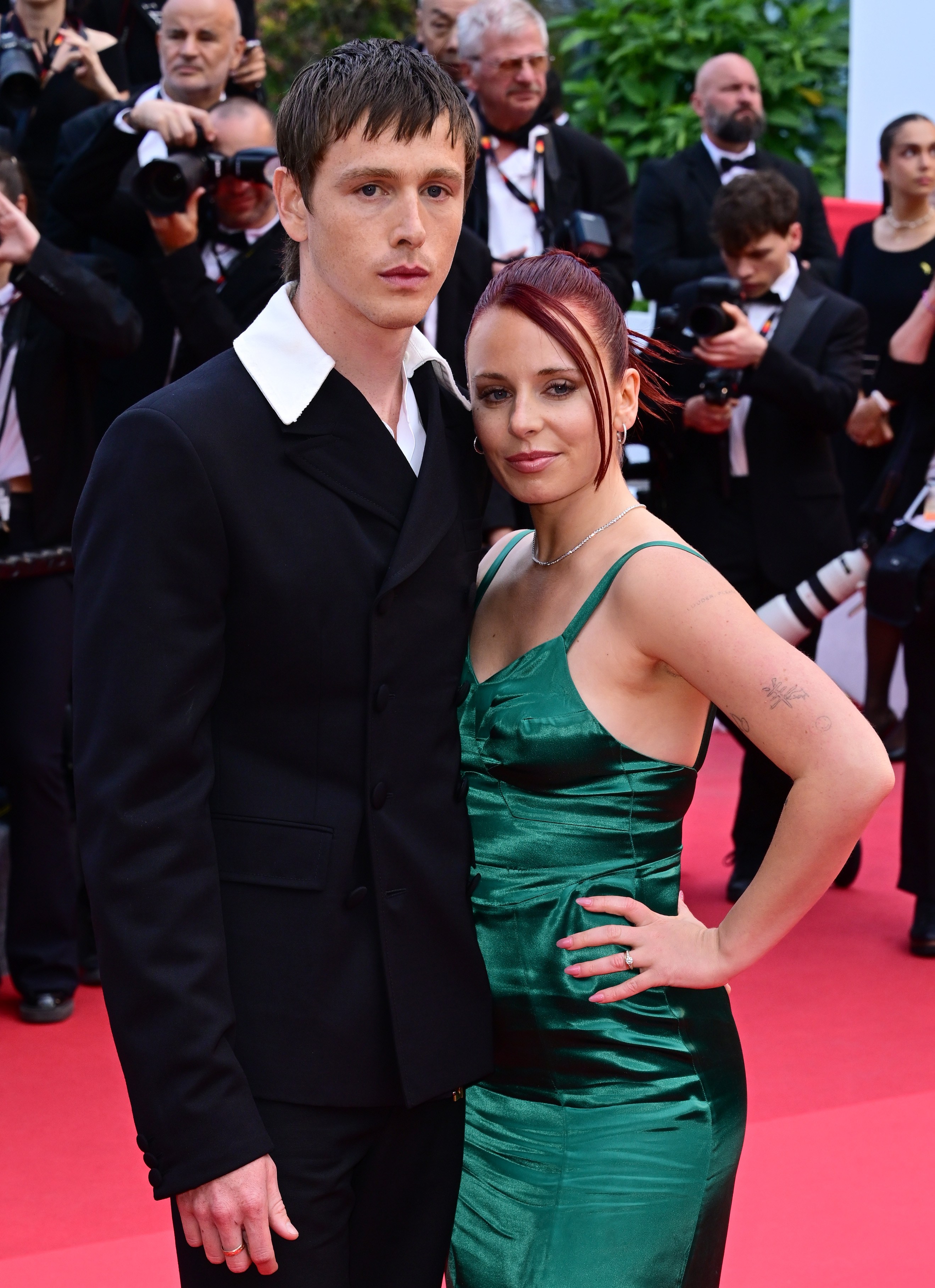
Dickinson with his partner, Rose Gray
ANTHONY HARVEY/SHUTTERSTOCK
Dickinson was born and brought up in east London, spending four years in the Royal Marine Cadets from the ages of 13 to 17 before deciding, “Nah, f*** that,” and acting instead. The US indie film Beach Rats was a breakthrough and he has never really been like most other actors. He just cares too much. Just after Beach Rats, he tells me, he took a part in “a Malaysian horror film” — Don’t Look at the Demon — and was shocked to learn how many colleagues are just there for the money.
“Look, I was working in a hotel at the time — I was buzzing to get a job,” he explains. “But I got to Malaysia and was having a cigarette with one of the actors, excitedly talking about the role, when she said, ‘Nobody’s ever going to see this.’” He pauses. “She basically told me she was there for the holiday and I was gutted because I wanted it to be good. I was turning up with my best shit and, well …
“I am always scared that all this is going to come tumbling down. I feel like every film could be my last.” Yet surely now he can pick better? “Yes, I feel comfort knowing I don’t have to do everything that comes my way, but it’s also about understanding the way I want to live my life. Do I want to be away from my family? My partner?” Dickinson lives with the singer Rose Gray. “It’s choices, isn’t it and Babygirl was significant while Triangle of Sadness was a bit of a moment, but my career’s a weird one to unpack.”
Did it feel odd how fast he went from being unknown to cavorting with Kidman? “Sure. It can be strange telling your mum what you’ve been up to.”
I first met Dickinson a couple of years ago, when he told me a story about a mystery actor — “a wanker, middle to upper class” — who “humiliated” him on an early film. The actor suggested they play a game where he pretended to be someone on set and everyone had to guess who he was. Someone asked “What food are you?” The reply was: “Fish ’n’ chips.” Then: “What TV show are you?” The answer? “Love Island.” It was designed to highlight that Dickinson is working class when everybody else on set was not.
Dickinson did not name the actor, but in the comments Sunday Times readers played sleuth, raking through Dickinson’s CV. “Go on,” Dickinson says, “who did they think?” Someone said Ralph Fiennes. “No, it’s not Ralph. Ralph’s a sweetheart.” Someone else said Robert Lindsay. “F***! I’ve been caught!” he shrieks, laughing so loudly I fear for the windows. So was it Lindsay? He doesn’t really answer, just mutters.
Make of that what you will, but since that time Dickinson’s life has changed. He is now mixing in circles not too dissimilar to the elite dissected so brutally in Triangle of Sadness. “That’s what my next film will be about,” he says, intriguingly. “But that’s not to say my life is perfect now, I’m still dealing with shit. People who look to success and think that it brings a clearance of problems are false, but, yes, I’m essentially middle class now. And while I do not like the categorisation of class, because it’s muddled, weird, outdated, my perspective has of course changed because of the life and career I have.”
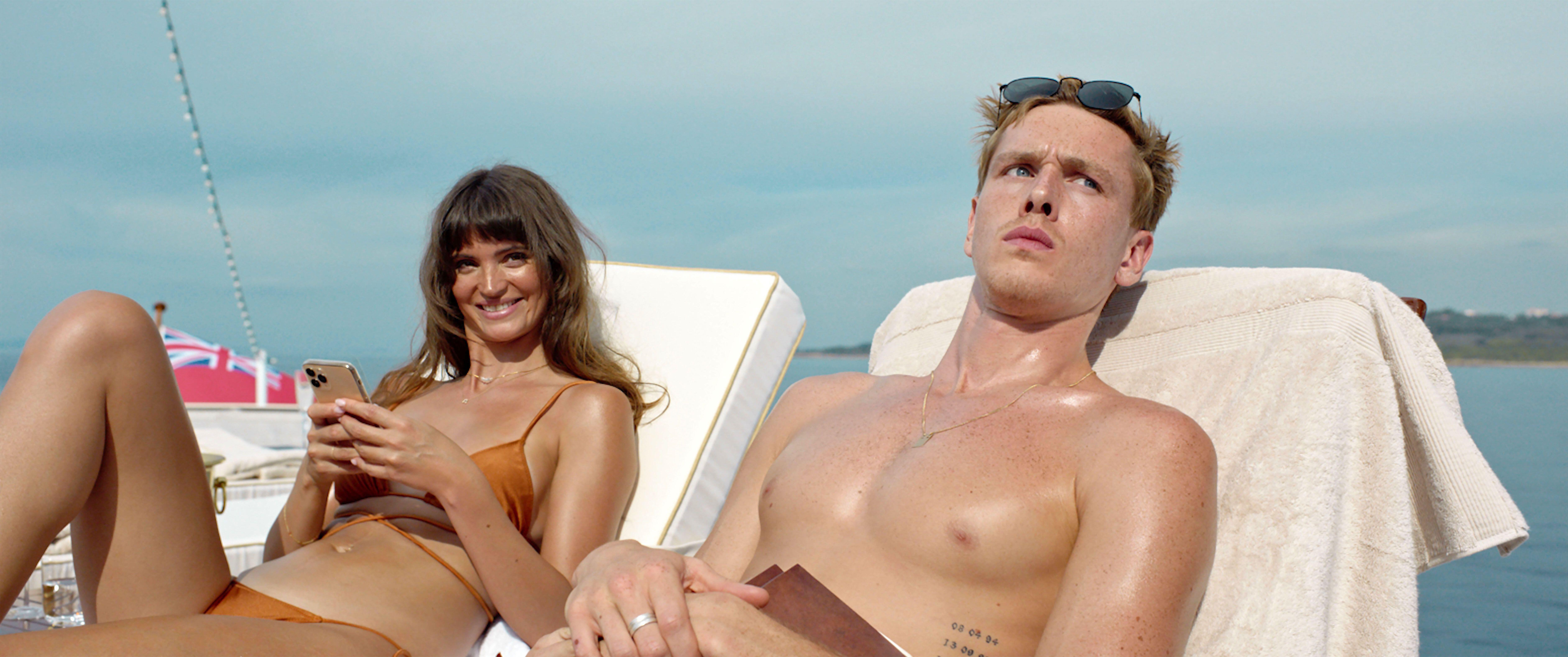
With Charlbi Dean in Ruben Ostlund’s Triangle of Sadness (2022)
PLATTFORM PRODUKTION/ARTE FRANCE CINEMA/ALAMY
He is open minded in his approach to roles. While Stephen Graham said he wouldn’t play Mr Darcy because he’s working class, Dickinson is game, voicing him in an upcoming Audible adaptation of Pride and Prejudice, with Marisa Abela as Elizabeth Bennet. “Yeah! It’s random that I got asked to do it,” he says. “Mr Darcy is definitely someone that I never saw on my bingo card, but that is beautiful material. It is something I didn’t necessarily grow up with an understanding of. But if I can have the variety in that sense and people aren’t seeing me as one thing, then I’m always into that.”
We end on Lennon. I assume he can’t say much about the films yet? “I’ve probably already said too much.” The script? “Obviously not.” Is there a WhatsApp group for him, Paul Mescal (McCartney), Barry Keoghan (Ringo) and Joseph Quinn (Harrison)? “Of course.” Called what? “You don’t want to know.”
I say that I emailed Tony King, an old friend of Lennon’s. “Did you now?” Dickinson says wryly. Indeed — he told me Dickinson had already been to see him to ask for advice on how to play the singer. King believes Dickinson should not do an impersonation, but “establish a ‘now’ version” of Lennon, “like Austin Butler did with Elvis”. Dickinson nods: “Do it like Austin.” King also added that Lennon was not a good drinker. “Like me,” Dickinson says. He could be unpleasant. “That’s not like me. I’m just a wimp.” So how will he play Lennon? “I actually don’t know.”
Mostly, though, King remembered Lennon’s sense of humour, which is why, frankly, this casting works. There is just such an easy wit to Dickinson that mirrors what we know of Lennon. For instance, when I tell him that at least being cast as Lennon removes Dickinson from the James Bond rumours, the actor raises an eyebrow. “Well, that won’t start for a bit, will it?” he says. “And I like a martini,” he adds. “But who knows?” Who does know? “I do.” Really? “Yes.”
So is it him? Who is playing Bond? “I can’t say, obviously.” He pauses. “It’s Michael Caine.” And he’s joking. Or is he?
Urchin is in cinemas from Oct 3
What’s your favourite film starring Harris Dickinson? Let us know in the comments below

